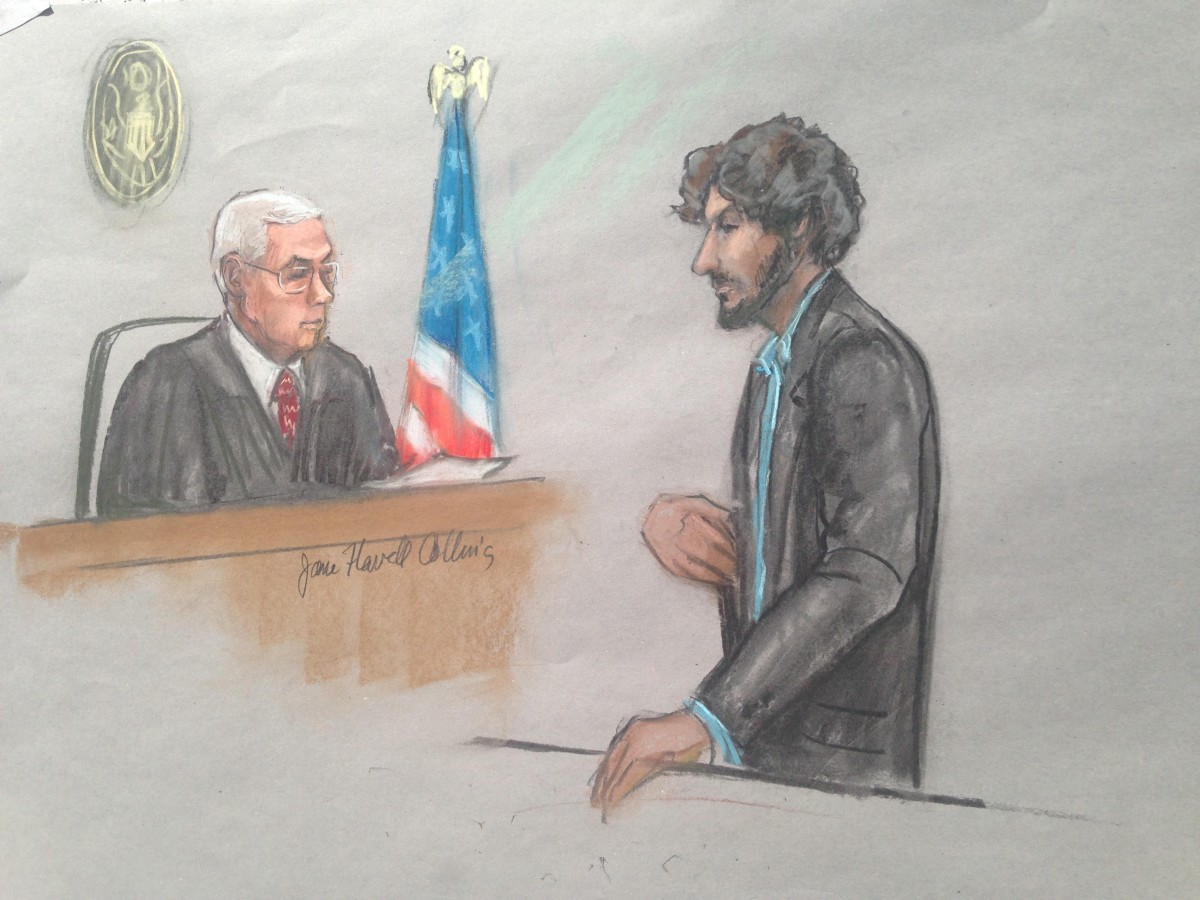New Documents Shed Light On Boston Marathon Bombing

Dzhokhar Tsarnaev addresses the court on June 24, 2015. Sketch by Jane Flavell Collins/AP
Just released documents on the Boston Marathon bombing are shedding new light on the events leading up to and after the terrible 2013 tragedy.
A combination of unsealed court filings and documents obtained by the Boston Globe through a multi-year FOIA now reveal a picture of Dzhokhar and Tamerlan Tsarnaev as nearly destitute immigrants who sought U.S. citizenship while plotting one of the worst terrorist attacks on American soil since 9/11.
The new findings show that Tamerlan passed his U.S. citizenship test with flying colors just three months before the attacks, though it is unknown exactly why his application was delayed by government officials. According to some officials, a 2009 arrest for assaulting an ex-girlfriend played a part in delaying the process. Tamerlan was so broke at the time of the test the government waived his citizenship application fees.
His only incorrect answer on the citizenship test was on the order of the courts in the judicial system. When Tamerlan passed the test, officials marked it “A decision cannot yet be made about your application” instead of a box that would have advanced it in the immigration process.
Tamerlan was killed in a shootout with police before a decision was formally made on his citizenship application.
New court documents just unsealed may change the way we think about how the attacks on April 15, 2013 unfolded. Dzhokhar told law enforcement officials in the days after the attack that the brothers acted alone and that he was the one who made the phone call that set the bombs off, not Tamerlan, as it was presented during the trial.
Dzhokhar told investigators while recovering at Beth Israel Deaconess Medical Center that he did not tell any of his friends about the attacks ahead of time because he did not care about them and didn’t hold many of them in high regard.
The statements, released as part of the appeal process in the trial of his friend Robel Phillipos, paint a picture of a cold and calculated terrorist who “did not expect to survive” for very long after the attacks.
Dzhokhar’s statements to officials in the aftermath of the attacks were not admitted in court because he did not have a lawyer with him at the time of the questioning.


